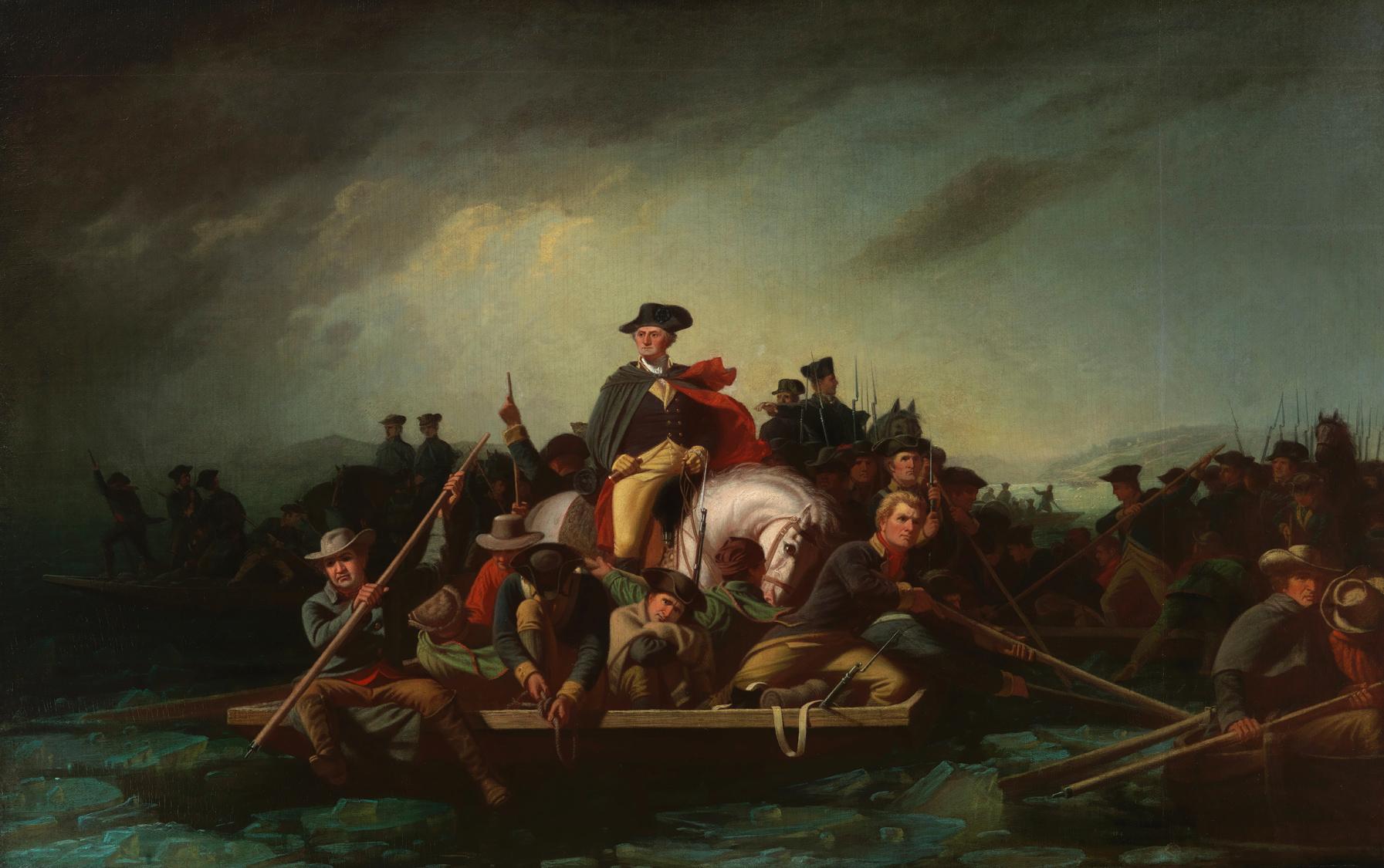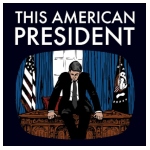Loading...
George Washington’s famous plan involving crossing the Delaware River happened on the night of December 25–26, 1776, during the American Revolutionary War. It was Washington’s first move in a surprise attack organized against the Hessian (German mercenary) forces in Trenton, New Jersey, on the morning of December 26.
Crossing the Delaware River Background
- Washington and his army had been gradually pushed out of New York and had to retreat all the way across the Delaware River into PA. The British now controlled not only New York City, but all of New Jersey.
- The British army was only 30 miles from Philadelphia. Congress has fled to Baltimore.
- The British army pursuing him (under the command of Lord Charles Cornwallis) decided not to cross the river and attack. Howe ordered the army to return to New York City for the winter, and Cornwallis planned to go to London.
- Washington’s army was down to 2400 men, about 10% of its strength at the Battle of Long Island, and enlistments were due to expire at the end of 1776. It looked as if his army would not exist much longer. Washington wrote to his cousin, “I think the game is pretty near up.”
- The British had left several detachments of Hessians at various locations in New Jersey to protect them from the Americans. Once such post was Trenton.
- Many people begin to talk about the possibility of replacing Washington.
- To build the morale of his army, Washington came up with a bold plan: he would plan crossing the Delaware River during the night and attack the Hessians at Trenton. To do this, he relied upon John Glover and his Marblehead (MA) ferries (they had previously ferried the army from Brooklyn to Manhattan).
- Washington also planned to send 700 men under James Ewing to cross the Trenton Ferry and seize the bridge over the Assunpink Creek just south of the town.
- A third detachment would attack a group of the Hessians at Mt. Holly to keep them from reinforcing Trenton. (Neither of these last two groups succeeded in their missions, but the Hessians in Mt. Holly still were not able to reinforce Trenton).
Hessians
- Hessians were German mercenaries. They were mostly from Hesse-Kastel, but some came from other German-speaking principalities.
- They had a reputation as fierce, disciplined professional fighters. Most of them had long mustaches.
- They made up to as much as 1/3 of the British forces.
- Americans considered them as barbaric thugs, but this was an exaggeration.
- After the war, 5-6 thousand stayed in the United States.
- The Hessians had 1500 men under the command of Col. Johann Rall. They paid little attention to the Americans camped across the river. Rall wrote “we don’t need trenches or fortifications. The rebel soldiers, those country clowns, they are almost naked, dying of cold. They have no provisions or blankets. Let them come. We shall welcome them with our bayonets.”
- The Hessians were celebrating Christmas with much food and drink. They fell into a sound sleep.
Crossing the Delaware River
- The crossing would be very dangerous:
- Men, horses, artillery and other equipment had to be ferried.
- It was Christmas Day…the river was full of large chunks of ice.
- The weather was bad, with much rain and snow.
- (Mention the famous painting by Emanuel Leutze)
- Washington had hoped to be in Trenton before daybreak on the 26th, but due to the weather and logistical issues, the crossing was delayed several hours. The last soldiers did not get across the river until 3 AM.
- The password for the operation was “Victory or Death.”
Additional Resources About Revolution and Colonies
Cite This Article
"Crossing the Delaware River: The Christmas Surprise" History on the Net© 2000-2024, Salem Media.
April 26, 2024 <https://www.historyonthenet.com/crossing-the-delaware-river>
More Citation Information.







